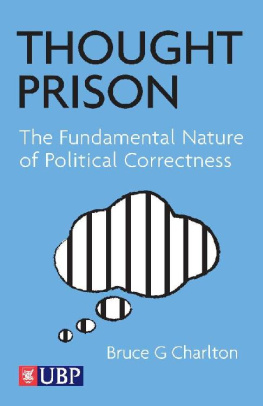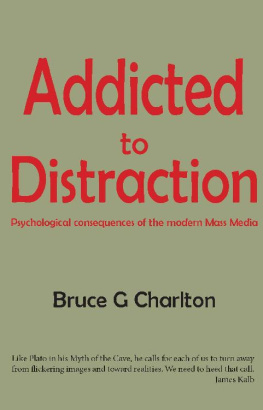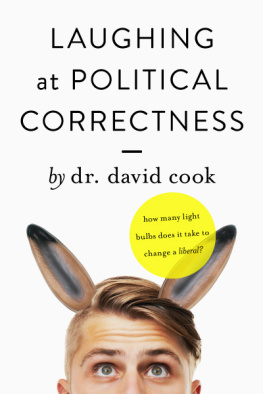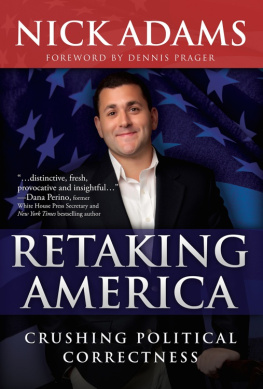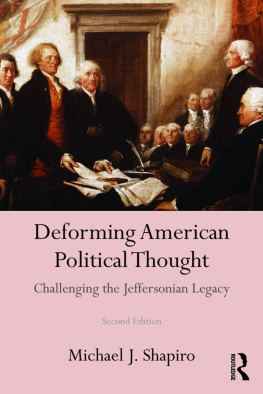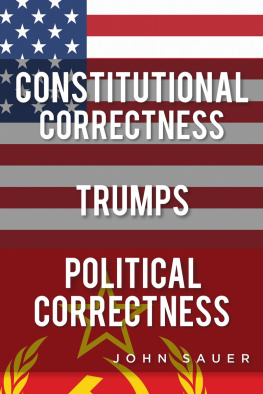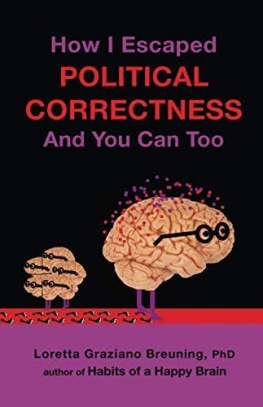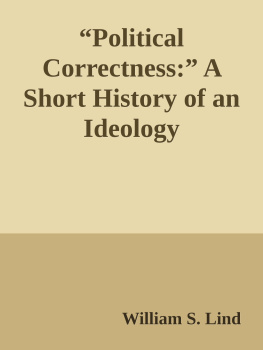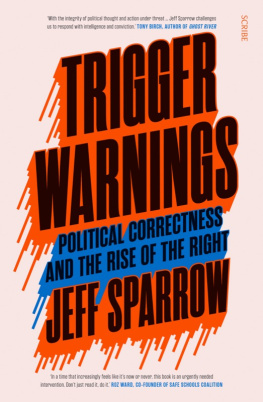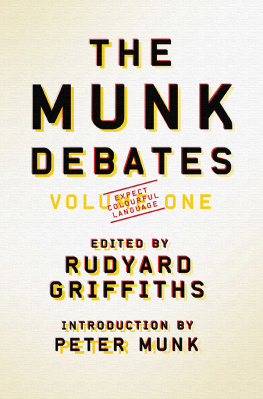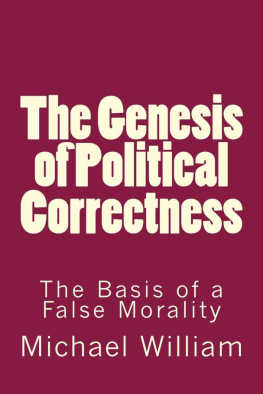The ideas and analysis of this book are indebted to a vast number of people over three decades, and of course to experience: personal, professional and political.
But the major positive influences on my thesis are threefold: JRR Tolkien, CS Lewis and Blessed Father Seraphim Rose (1934-1982) a US-born Hieromonk of Platina, California in the Russian Orthodox Church Outside Russia whose essays, books, translations, collections and personal example are the most profound of antidotes to PC.
A special thank you goes to a group of thoughtful regular (and often pseudonymous) commenters at my blog Bruce Charltons Miscellany , where these ideas were first formulated and drafted; and to John Granger (a.k.a. The Hogwarts Professor) for his clarifying exposition of the Harry Potter series of novels by JK Rowling.
James Kalbs writings on Liberalism (meaning the same phenomenon which I chose to call Political Correctness) are the most insightful of any that I know. Indeed, Thought Prison was written under considerable anxiety of influence with respect to Jim! I thank him for his cover comments; and whole-heartedly recommend his book The Tyranny of Liberalism to any who wish to follow my analysis to a deeper level.
My family are what remind me that, although political correctness now extends its tentacles almost everywhere, there are still islands of soul and sanity so this book is dedicated to Fraser, Gill, Billy and Nancy.
Why I use the term Political Correctness, instead of Liberalism or Socialism?
The reasons include:
1. The confusion over what 'liberalism' means - to some a free marketeer, to others a socialist. My definition of political correctness is broad and includes most mainstream conservatives, libertarians and anarchists; who are nowadays all significantly PC.
2. Differences in usage between the UK and US: in the UK the Liberals are a strange mixture of business- and farming-friendly Centrists with pacifist Leftists of an upper middle class type; in the US Liberals are the furthest Left of mainstream political ideologies.
3. That although PC clearly evolved from what is in the UK called socialism, and in the US called liberalism; PC is the outcome of a distinctive 'turn' in Leftist politics, which became obvious in the mid-1960s. In its striking, explicit, surface features PC is something new under the sun, never before seen in history.
4. Leftist political groups have, over the years, called themselves Communist, Socialist, Labour, Social Democrat, Liberal Democrat, Democrat and various other names but none of these have become dominant, and none are fully inclusive of Leftism.
5. The dawning realization that the phenomena collected together under the jokey term 'political correctness' was a vastly more robust and malignant thing than I had ever imagined.
*
So that what seemed either silly or trivial or both, will end by destroying that modernity which made PC possible in the first place.
Yet we can perceive now, in advance of all this, that even when PC is utterly swept-away it will be blind to what has happened, and to what it had done. PC will always see itself as being on the side of the angels, whatever its outcome may be.
*
It is a truly amazing thing, this political correctness; something so paltry, so puny, so soft - yet wreaking such devastation while rendering the devastation imperceptible.
It seemed, therefore, worth discussing under its new name, as a phenomenon not truly new at its deepest level - but new in its combination of idealistic, delusional subjectivism with deadly, plodding bureaucracy.
Introduction
Political correctness (PC) is the dominant ideology of the Western intellectual world PC is what the West has instead of a religion.
PC is a thing of the political Left in its origins and central constituency, yet has in recent decades been embraced by the mainstream political Right and Centre. Political correctness therefore represents the triumph of the Left.
Nonetheless, political correctness very obviously violates both common sense and logic, and is destructive of all that is good, beautiful and true.
So, at one and the same time, PC is marginal and mainstream, ridiculous and mandatory; crazy and normal.
This book explains how something so bizarre and wicked could become so ubiquitous and unremarkable.
*
Political correctness obviously dominates its core territory of politics, public administration (the civil service), law, education and (especially!) the mass media. But PC also substantially shapes everything else: foreign policy, the military, policing, the economy, health services, and personal life: the mating game, friendships and even family life.
Therefore political correctness is objectively totalitarian. That is to say comprehensively coercive of body and spirit, against human agency: anti-the soul.
Just as with the cruder totalitarianism of the mid-twentieth century, PC has created a population that lives in fear: fear of being denounced and losing everything fear of committing (or indeed merely being accused-of) a thought crime or uttering a hate fact for which there is no defence; fear of the sanctions which range from social ostracism, through loss of job, financial penalties, up to directed mob violence and imprisonment.
Consequently the mass of people, especially those of status with power and influence have learned and internalized the constraints of political correctness, so that it is now something inside us, as well as pressing upon us. The shabbiness, lies and wickedness of PC permeate our very thought processes.
As if in illustration, this book has no specific examples of political correctness.
The reader must provide relevant instances from personal experience and unofficial knowledge.
Anyone unable to do this will be unmoved by my arguments.
*
So, political correctness is the ruling ideology of the West, and it is everywhere, so it cannot be attacked or overthrown without attacking and overthrowing pretty much everything. Political correctness is therefore de facto irrefutable, immovable, expansile in tendency... and yet, of course, as we all recognize, PC is self-destroying: achievement of its aims is common-sensically incompatible with its own survival.
*
Am I therefore suggesting that Western civilization is doomed? Yes, very probably it is doomed.
Can anything be done to prevent this, anything political perhaps? No I dont think so.
So why am I bothering to write a book about it?
The answer is simple, but will strike most of my target audience of secular intellectuals as bizarre at best, nonsense at worst: the answer is so that some individuals may escape the general corruption and save their souls.
Because, PC is more than anything else destructive of the soul proceeds, indeed, from the denial of the soul.

